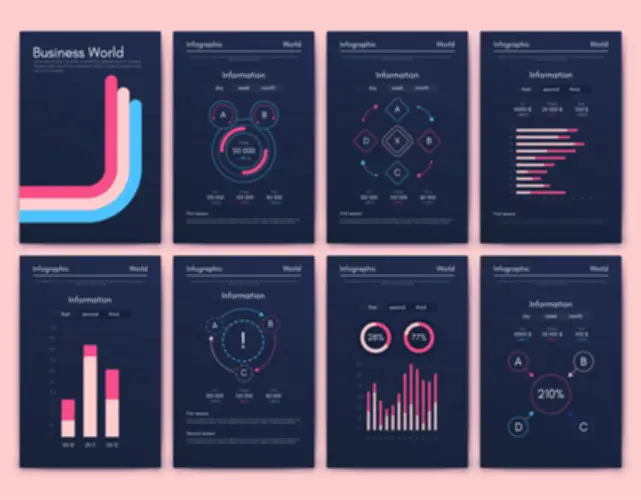AI is altering manufacturing by enhancing productiveness, enabling predictive maintenance, and optimizing supply chains. This regional analysis underscores AI’s vital function in shaping the way ahead for manufacturing, making industries more adaptable, environment friendly, and progressive worldwide. Its key applications embrace automating critical duties, detecting product defects, and enhancing quality https://www.globalcloudteam.com/ management, which leads to smarter and extra environment friendly processes. AI applications in manufacturing can predict what customers will order, observe how properly suppliers carry out, and optimize when deliveries occur. With AI and ML in manufacturing, factories analyze real-time sensor data to figure out exactly when parts may fail.
Synthetic intelligence is becoming an integral a part of manufacturing as automotive, electronics, metals, and other firms use it to remain competitive and resilient in an more and more complex world market. Rising consumer demands, provide chain disruptions, and workforce shortages are putting ai in the manufacturing industry significant pressure on factories. In mild of this, AI is being actively introduced to help producers tackle various operational challenges, such as manufacturing unit downtime, material waste, and market unpredictability.

Nonetheless, solely 16% reached their targets, mainly due to an absence of digital skills and scaling capabilities. With Out AI, corporations battle with inefficiencies, elevated downtime, and higher operational prices, making it more durable to compete in an AI-driven industry. AI permits continuous monitoring of kit and processes, permitting producers to detect inefficiencies and prevent disruptions. Manufacturers usually struggle with inaccurate stock tracking, resulting in stock shortages, overstocking and supply chain disruptions. Handbook tracking strategies lack precision and trigger delays in procurement and manufacturing.
This includes instructing staff how to use AI instruments, understand knowledge, and work with AI systems to make processes better. Manufacturers should begin by conducting a radical assessment of current processes to determine pain points. They can then prioritize areas for AI integration, safe finances allocations, and provoke pilot projects that reveal potential improvements before scaling up the implementation throughout the group. Make Investments in targeted training applications for engineers, analysts, and operators, specializing in AI purposes you’ve selected and each role’s duties. While building in-house AI experience, companion with software program growth agencies, technical institutes, or AI software vendors to convey in area consultants for AI system implementation and maintenance.

Technology Stack
Cobots aren’t restricted to bodily limitations in manufacturing facility settings and could be deployed and directed to finish totally different duties. The hazards current in manufacturing settings mean that cobots have to carry out with precision, be coded with heightened sensitivity and pressure detection, and be capable of maneuver safely alongside people. AI can monitor the entire asset portfolio, integrating methods to share data and shift assets between nodes.
To reap the advantages of ai in manufacturing, it’s essential to incorporate AI as soon as attainable. Nevertheless, doing so demands a substantial funding of time, effort, and assets, as properly as the upskilling of your workforce. Ending pilot initiatives to be scaled up quickly and out of the pilot phase is essential. The window of alternative to integrate AI into production processes is closing for these who nonetheless want to take action. Software powered by artificial intelligence can help businesses optimise procedures to take care of excessive manufacturing rates indefinitely. To locate and eliminate inefficiencies, producers might use AI-powered course of mining applied sciences.
Synthetic intelligence (AI) and manufacturing go hand in hand since people and machines must collaborate closely in industrial manufacturing environments. With a lot data being produced every day by industrial IoT and smart factories, synthetic intelligence has several artificial general intelligence potential makes use of in manufacturing. Producers are increasingly turning to artificial intelligence (AI) solutions like machine studying (ML) and deep studying neural networks to raised analyse information and make decisions.
- Whether it’s technological integration or third-party integration, both contribute equally to the development cost of AI options in manufacturing.
- Throughout the sector, this transition from optionally available enhancement to mandatory requirement impacts each compliance and corporate reputation.
- These methods can recommend adjustments that reduce vitality prices and reduce environmental impression.
Architectures And Knowledge Modelling For Ai In Manufacturing

LG additionally offers smart manufacturing unit options to clients’ factories and their own services. These options combine digital twins, big data, and imaginative and prescient AI and generative AI capabilities to enhance product quality, industrial safety, and gear efficiency. Since 2019, the BMW Group has broadly implemented AI in their crops to streamline manufacturing planning and handle complicated meeting operations. Aiming to scale the solution to greater than 30 production websites, the corporate expects to cut planning costs by as a lot as 30% and scale back collision-check time with its help https://awagamancasting.com/monitoring-process-stability-with-management/.
Conventional software program utilized in manufacturing firms executes rule-based duties based mostly on predefined directions. In contrast, tools equipped with AI can regulate their output, bettering outcome accuracy over time without manual reprogramming. Quality control and inspection are critical features of the manufacturing process, ensuring that merchandise meet the required standards and specifications. newlineAs a result, AI is revolutionizing this space, providing new methods to automate and optimize quality control processes. For example, a quantity one aerospace producer used AI-powered digital twins to simulate and optimize the design of a new plane engine. By operating hundreds of virtual tests and analyzing the results with AI, they recognized the optimum design parameters and lowered development time by 50%. The effectivity of AI purposes in manufacturing relies upon massively on the data quality and amount used for the coaching.
AI streamlines production by optimizing workflows, lowering downtime via predictive upkeep, and automating repetitive duties. AI reduces operational costs by automating duties, minimizing materials waste, and enhancing power effectivity. Manufacturers utilizing AI-driven automation have reported a 10-15% reduction in overall costs.







